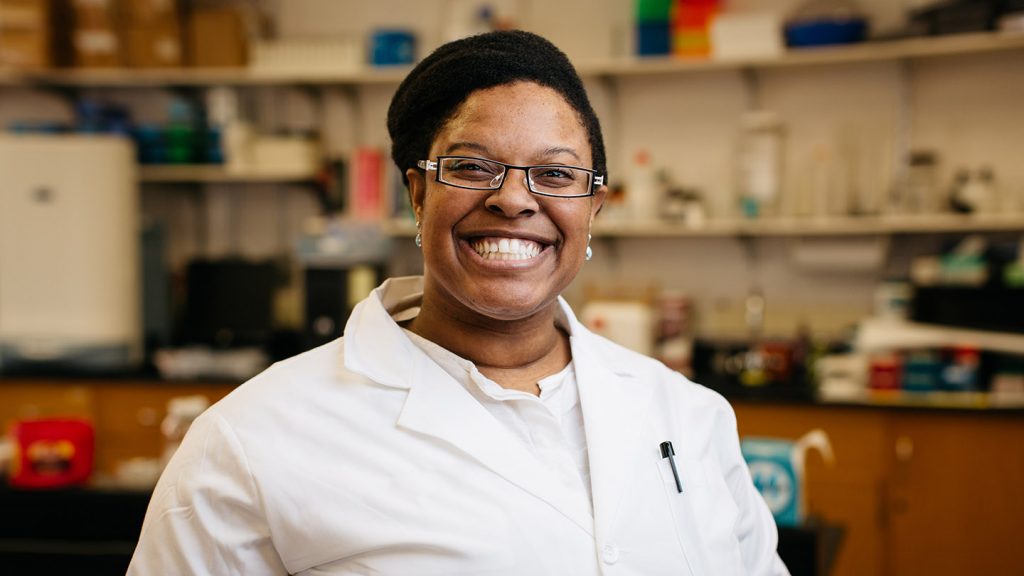Joining the Fight Against COVID-19
By Katie Neitz
Khadijah Mitchell, Peter C.S. d’Aubermont, M.D., Scholar of Health and Life Sciences and assistant professor of biology, is co-leading a Pennsylvania Department of Health (PA DOH) task force committee aimed at helping to mitigate the impact of COVID-19 among racial and ethnic minority groups.
Scientific data from around the country showed that racial and ethnic minority groups tend to have higher mortality rates from COVID-19. In order to address that disparity and create health equity across the state, the PA DOH Office of Health Equity (OHE) recently organized a COVID-19 Health Equity Response Team.
Mitchell was asked to co-lead the group because of her extensive experience researching health disparities and her passion for serving the community as a public health advocate.

Khadijah Mitchell
Mitchell has spent most of her career investigating why African Americans have higher incidences of lung cancer compared to European Americans. In recent years, she expanded her research to study kidney cancer, for which she received a $75,000 grant in 2019 from the Department of Defense Congressionally Directed Medical Research Programs.
The Health Equity Response Team’s charge is to create evidence-based strategies and recommendations that can mitigate the effects of COVID-19 in marginalized populations across the 67 counties that make up the state. There are 12 committees, each focused on a different group of marginalized populations. Mitchell’s team is focusing on racial and ethnic minority populations.
“We are working to try to reduce health disparities and achieve health equity—everyone needs to have their health needs met and to be as healthy as possible,” Mitchell says. “It’s working to empower communities with education and the tools they need to protect themselves. It’s challenging but very rewarding, and I feel honored and humbled to have this role.”
One area that Mitchell and her colleagues are exploring are cultural communication standards.
“You can find infographics about washing hands, social distancing, and how to properly wear a mask in English and Spanish—but not in the diversity of languages we may need in certain areas,” she says. “We also need to consider how we are communicating about testing and eventually how we will communicate about vaccines. Do people know where to go for a test? Do they have access to testing? We want to understand what the barriers are and how we can help people overcome them to promote health equity.”
Although Mitchell’s expertise comes from studying a chronic condition, not a viral disease, she recognizes how her experience applies.
“COVID-19 has a devastating impact on people with chronic conditions, so there is an intersection with my work,” she says. “Also, in my work, I share messaging about cancer prevention and cancer control, and the same applies here. We are interested in preventing infection, and if someone does get infected, we want to control the spread.”
Mitchell’s team’s recommendations will cover short-term, medium-duration, and long-term measures. They are thinking ahead to when a vaccine will be developed and how they will need to prepare for that stage—how will we ensure there are enough syringes, gloves? How will it be refrigerated, distributed? How will the public be educated?
Despite the challenges of working on an ever-evolving global health pandemic, Mitchell is optimistic and grateful for the opportunity to serve the community.
“We are a very smart, very capable society,” she says. “When a vaccine comes, it’s going to be good and effective. There are many people in the community who have had negative experiences with health care and are distrusting. I’m trying to build trust and provide the education and tools so they can empower themselves.”